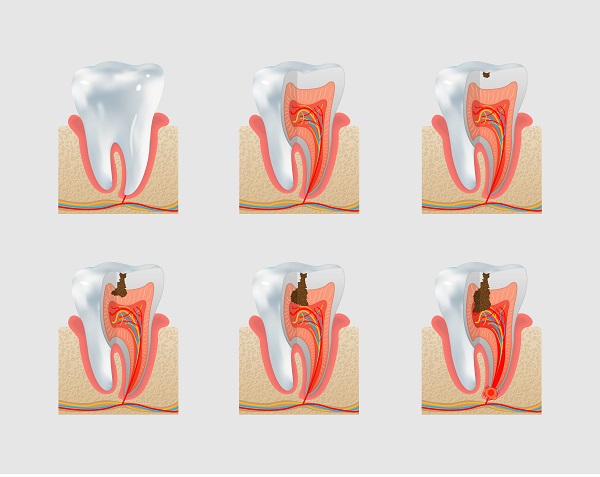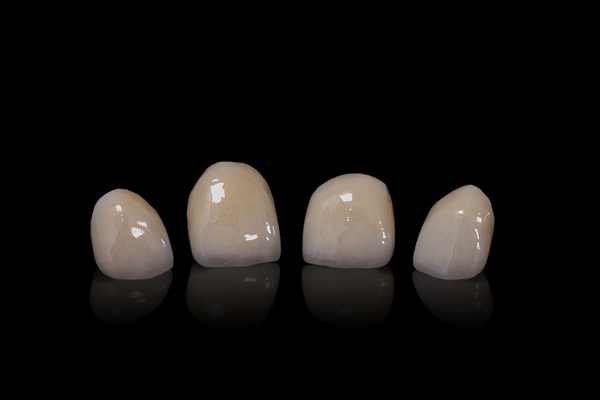Why Should I Get Cavities Treated?

Cavities often precede far more severe oral health concerns, including the loss of teeth. The good news is that cavities are treatable in the early stages through dental fillings, root canal therapy, and dental crown treatment. However, if left untreated for an extended amount of time, cavities can eventually cause some highly undesirable complications.
The risks of leaving cavities untreated
The primary risks of leaving cavities untreated are the development of deep tooth decay, oral infection, and the loss of teeth. Subsequently, anytime signs of cavities develop, such as dark spots on teeth, teeth sensitivity, and small holes on the teeth, it is important to schedule a visit with a dentist.
Deep tooth decay
Cavities are likely to grow larger and deeper the longer they remain untreated. This is because it is far more likely that bacteria and food particles become trapped in the cavities, resulting in more acidic attacks that damage enamel and the deeper layers of the teeth. If deep tooth decay develops, then it can cause uncomfortable symptoms such as pain and sensitivity and can lead to the need for more invasive treatments to treat the cavities.
An oral infection
An oral infection often occurs due to untreated cavities. This is because deep tooth decay can leave the roots of teeth exposed, which allows bacteria to invade the root and cause a bacterial infection. The infection can cause pain to the tooth as well as fever, swollen lymph nodes, and other troubling symptoms. If left untreated for too long, the infection could possibly spread inside the mouth and body as a whole.
Dental abscess
A dental abscess results from an oral infection. It is essentially a pocket of pus that forms near the root of the tooth and can cause discomfort, swelling, and bad breath, along with a fever and swollen lymph nodes that can result from the infection. Most commonly, a dental abscess stems from an untreated dental cavity.
Increased risk of teeth loss
The ultimate outcome for many patients who do not seek prompt care for cavities is the loss of teeth. This occurs when the root of the tooth is no longer strong enough to support the tooth. For patients who have gum disease as well as cavities, the loss of teeth could be accelerated.
What are the early signs of dental cavities?
The early signs of cavities include dark spots on teeth, tooth sensitivity, small holes on teeth, and pain when biting down. In the early stages, the enamel may turn a lighter white color when it starts to weaken as well. Any signs that cavities may exist are cause for concern and should prompt a visit to the dentist.
Schedule a consultation visit for cavities treatment
If you believe you have one or more cavities, then contact our dental practice today. We can examine the severity of the cavities and make a treatment recommendation accordingly. Some of the more common forms of cavity treatment are fluoride, dental fillings, and root canal therapy.
Request an appointment here: https://www.ismiledentalcarenj.com or call iSmile Dental Care at (908) 810-1234 for an appointment in our Union office.
Check out what others are saying about our dental services on Yelp: Cavities in Union, NJ.
Related Posts
When it comes to restoring damaged or weakened teeth, dental crowns provide an effective and lasting solution. Dental crowns are custom-made caps placed over a tooth to restore shape, size, strength, and appearance. Understanding the different types of dental crowns available can help patients make informed decisions about their dental care.Porcelain crowns are crafted entirely…
An emergency dentist provides immediate care for urgent dental issues. Dental emergencies can happen anytime, often causing pain or discomfort that cannot wait for a regular appointment. Recognizing the signs of a dental emergency helps patients seek the right care quickly and can prevent further complications and protect their oral health.A dental emergency calls for…
Seeing a preventive dentist is a vital part of your oral healthcare routine each year. However, many people skip this essential step because they do not want to spend time at a dental office. Fortunately, a preventive dentist provides many valuable services that can help your smile last a lifetime and stop future issues before…
Looking into the different teeth whitening options and wondering if you should choose the professional route? Even though it is easier than ever to whiten one’s teeth with over-the-counter options, generic whitening options tend not to be a good idea for many people. Ready to find out more about the professional teeth whitening route?Learning the…


